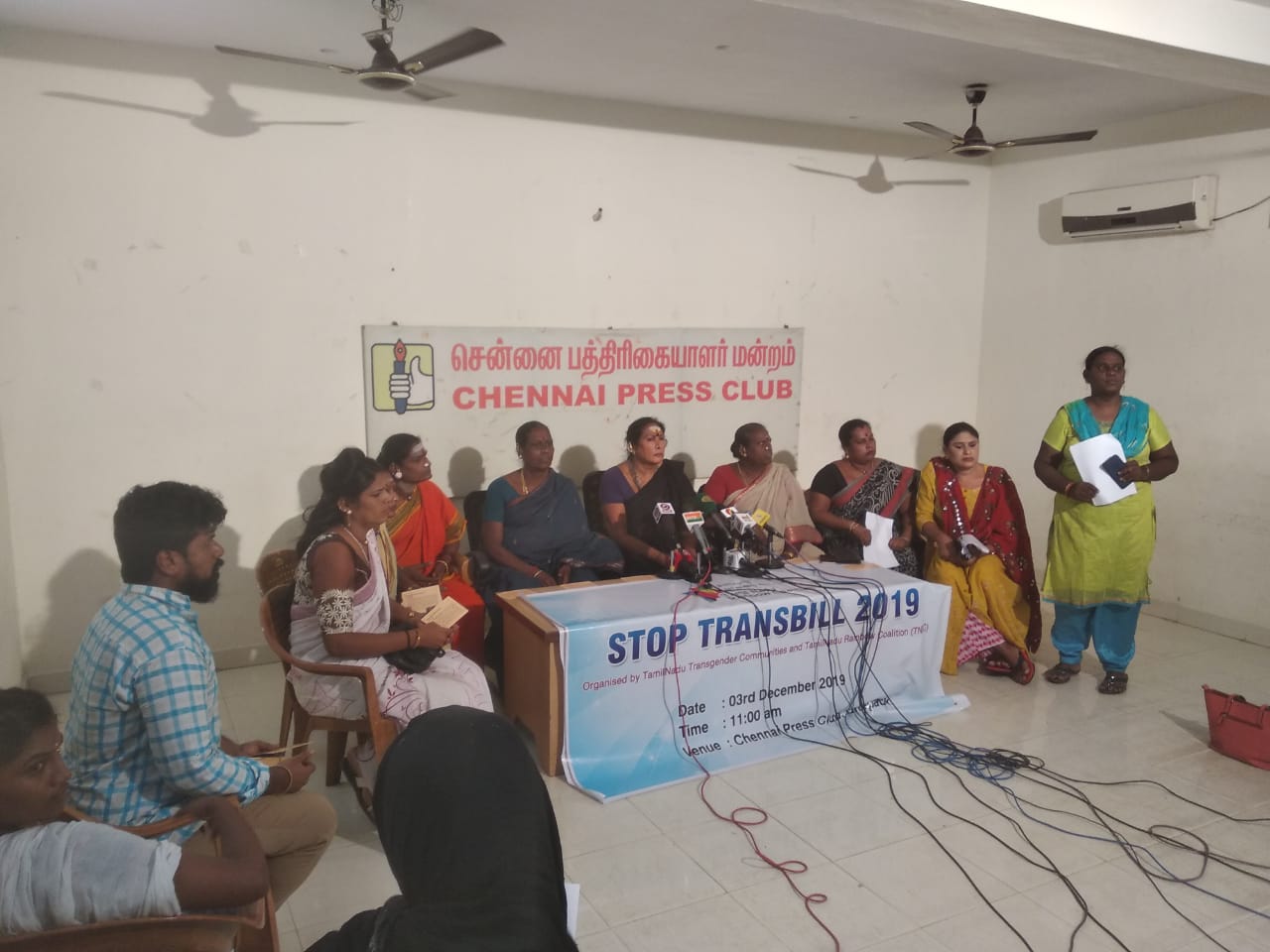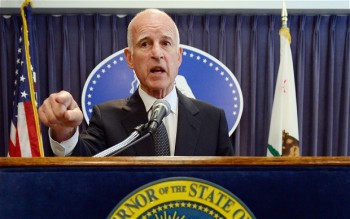Tamil Nadu protests Trans Bill 2019


The following statement was released at the Press Meet held on Dec 3, 2019, at the Press Club, Chepauk, Chennai. The press meet was held concurrently with a postcard writing campaign addressed to the President of India, asking him not to give his assent to the Bill in its current form.
Click here for Tamil version of the Press Release.
Dec 3, 2019, Chennai:
We transgender community members, allies, and members of the Tamil Nadu Rainbow Coalition, a network of LGBTIQA+ groups, collectives and individuals in the state, express our profound dismay at the passing of the Transgender Rights Bill in the Rajya Sabha. The Bill, that was passed by the Rajya Sabha on Nov 26, 2019, is in gross violation of the Supreme Court of India’s NALSA verdict of 2014, and Articles of the constitution such as Article 21 (Right to Life and Liberty), Article 19(1a) (Right to freedom of speech and expression)
1. The primary violation of NALSA seen in the Transgender Bill 2019 is the principle of self-determination. Although the Transgender Bill 2019 does away with the Screening Committee, granting of transgender identity is based on approval of the District Magistrate who has discretionary powers to deny the application. Additionally, for a transgender person to identify as male or female, proof of surgery is required, which contradicts NALSA.
2. We take strong exception to the provision that the primary caregiver for transgender persons – even adults – should be the biological family, and the only alternative is government-provided rehabilitation facilities. There are two issues with this. One, the biological family is often the primary site of violence against transgender children, and trust in the biological family as primary caregiver is misplaced. Second, the Bill completely ignores alternative family structures within which transgender persons have the constitutional right to stay. An example is the traditional jamaat system that has provided shelter and support to transgender women for centuries. Other examples could be intimate partners, friends, etc.
3. The Bill does not contain any mention of reservations in education and employment for transgender persons. This is also in gross violation of the NALSA verdict.
4. Punishment for assault and other egregious offences against transgender persons is limited to a maximum of two years. This treats transgender persons as inferior citizens in comparison to cis women and children, crimes against whom merit more severe punishement. Additionally, clear operational definitions of stigma and discrimination are needed, to ensure that transgender persons are protected against these, and action is taken against offenders. We, additionally, needed an Act for Prevention of Atrocities against Transgender and Intersex Persons, on the lines of the SC/ST Atrocities Act.
5. The Bill confuses transgender and intersex. The Hindi translation of the Bill uses the term “Ubhayalingi” which means Intersex. While we ask that provisions for intersex persons be included in the Bill, we ask that transgender not be used interchangably with intersex. Most transgender persons do not have differences in sexual development (DSD).
6. Transgender identity cards that recognize the rights of individuals to identify within or outside the binary should be issued in all states, as is the practice in Kerala. These identity cards to encompass transmen, transwomen and third-gender individuals.
7. Transgender women should be brought within the ambit of ‘women’ in the Protection of Women from Domestic VIolence Act (2005), as has been recorgnised by the Oct 2019 ruling of a Delhi magisterial court.
8. Free gender-affirmation surgeries and hormone therapies should be made available across the country for trans men and trans women who need them.
Unless these changes are incorporated, we ask that the Transgender Rights Bill (2019) not be given Presidential assent.


